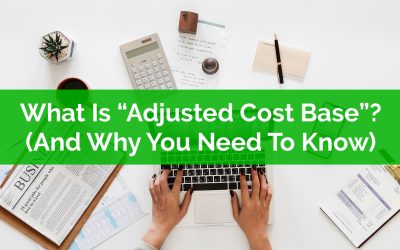Congratulations! You’re on the waitlist!
We will e-mail you before the bootcamp launches for an exclusive preview.
Check out our latest blog posts…
Can You Retire When The Stock Market Is At An All Time High?
Can you retire when the stock market is at an all time high? For many soon-to-be retirees this is an important question. It can be extremely nerve-racking to “pull the plug” and leave a stable income when investment values are at their peak.
But is this really a concern? Is it bad to retire when markets are at an all time high?
For many soon-to-be retirees, their investment portfolio will make up an important part of their future retirement income. Even retirees with a pension or full CPP/OAS will often have a small investment portfolio to support additional spending in retirement.
Many retirees worry about retiring at an all time high. They worry about a large decline in investment values soon after retirement. They believe this will dramatically impact their retirement plan. But is this concern justified? Or is this one of those biases that we’re all susceptible to?
Working for a few additional years would certainly help solidify a soon-to-be retirees financial plan, but at what cost? That lost time can never be recovered and could represent some “prime retirement years”. That income may also never be needed if everything goes to plan.
As it turns out, we’re actually at an all time high quite often, and the impact of retiring at an all time high isn’t even close to what we’d assume…
What Is “Adjusted Cost Base”? And Why Every Investor Should Know
For many investors adjusted cost based is something they may never need to worry about (but should still be aware of!) For most investors who are only using tax-sheltered accounts like the TFSA or RRSP, they never need to worry about adjusted cost base (or ACB for short).
This is because ACB is only required to calculate capital gains tax, and because most investors are investing inside a tax-sheltered account like a TFSA or RRSP, this is a non-issue.
But for anyone with investments outside of a tax-sheltered account, adjusted cost base is extremely important! And your ACB is something that you need to stay on top of.
Adjusted cost based is something every individual investor needs to track on their own. Yes, some mutual funds, robo-advisors, or even brokerage accounts might track adjusted cost based for you, but in the fine print they typically tell investors to track it themselves too. Why? Because they don’t want to be held accountable for a tax issue in the future.
Here’s why we need to worry about ACB and some tips on how to track it…
Don’t Get Surprised By OAS and CPP Survivor Benefits
For many people, CPP and OAS will make up a significant portion of their retirement income. A reduction in CPP and OAS income due to CPP survivor benefits or OAS survivor benefits can be very stressful. Even more so because this reduction will follow the unexpected death of a partner or spouse.
Many people may not realize, but OAS and CPP survivor benefits are reduced by anywhere from 40% to a full 100%!
For higher income households, who may have significant assets in either RRSPs or TFSAs, it’s not uncommon for CPP and OAS to make up 25%-30% of their retirement income.
For lower and moderate-income households, government pensions like CPP and OAS can provide 50%-75% of their retirement income.
For very low-income households, CPP and OAS, when combined with other low-income benefits like GIS, can easily make up 100% of retirement income for some couples.
In all of these situations, losing even some of these benefits can result in a big change to retirement plans, and what many people may not realize is the extent to which some of these benefits can be reduced when a partner passes away.
Although difficult and unpleasant to even think about, the impact of a partner’s death is an important consideration for many retirement plans. It’s important to understand what changes there might be to both retirement income and retirement spending if the unfortunate were to happen.
For some plans, those which have a large amount of investment assets, the risk is much smaller. Investment assets inside RRSPs and TFSAs can be transferred through spousal rollovers with no tax consequences. So, the disruption to these plans may be smaller.
But for some plans, the change in CPP and OAS income due to an unexpected death can be quite large, especially in certain circumstances. In the worst-case scenario, the loss of CPP and OAS combined can easily represent more than $20,000 per year in lost retirement income!
Here’s what to watch out for when it comes to CPP survivor benefits…



